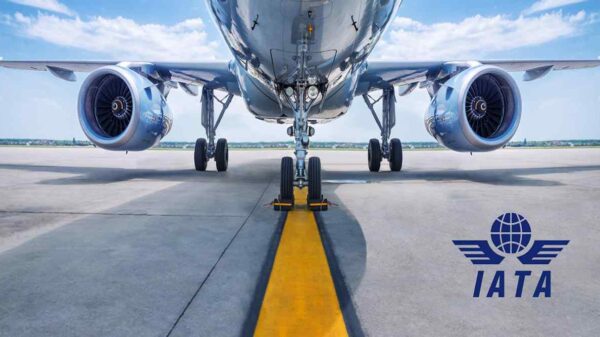Dreaming of soaring the Nigerian skies?
Have you ever envisioned navigating the Nigerian skies and commanding aircraft as a pilot? If your aspirations involve traversing the vast expanse above, this guide is your essential roadmap.
We’ll unravel the steps, prerequisites, and promising avenues for budding pilots in Nigeria, demystified in straightforward terms.
Defining a Pilot: Roles and Scope
Before delving into the specifics, let’s demystify the role of a pilot in Nigeria. A pilot here is anyone certified to operate aircraft, spanning commercial, private, or military sectors. Their primary responsibility involves transporting passengers, cargo, or military personnel. These professionals operate within commercial airlines, private aviation entities, or military training programs.
Private pilots in Nigeria might operate independently or cater to individuals with private aircraft. Conversely, military pilots navigate jets, bombers, and helicopters for diverse missions, encompassing combat, rescue, and reconnaissance.
Unveiling the Prerequisites: How to Set Course as a Pilot in Nigeria
Embarking on a career as a pilot in Nigeria mandates meeting specific requisites. These prerequisites form the launching pad for taking flight into the skies.
Age Criterion
To chart your path in aviation schools or employment within the industry, you must attain a minimum age of 18.
Language Proficiency
Proficiency in English, alongside a native language, is imperative. English serves as the formal communication medium within Nigeria’s aviation sphere.
Educational Foundation
A Secondary School Leaving Certificate with at least five credits, encompassing Mathematics, English, Physics, Geography, and other scientific subjects, is essential. While not obligatory, a university degree augments job prospects significantly.
Commercial Pilot Certificate
The pinnacle requirement for securing employment with any airline company in Nigeria.
While the initial four requisites are clear-cut, let’s navigate the intricacies of the fifth and crucial requirement—the Commercial Pilot Certificate.
Navigating Education and Training: The Foundation of a Pilot’s Journey
Commencing your pilot journey in Nigeria hinges on education and training. Enrolling in an aviation school marks the primary step. However, several crucial aspects warrant consideration:
Cost Considerations
Tuition fees at Nigerian aviation schools typically range from 6 to 8 million Naira. Overcoming this financial hurdle may involve seeking scholarships or financial aid from airline companies, repayable post-graduation.
Accreditation Assurance
Choosing an aviation school sanctioned by the Nigerian FAA (Federal Aviation Administration) ensures recognition and validity of your education.
Charting Income Trajectories: Earnings of Nigerian Pilots
The income spectrum of Nigerian pilots hinges on multiple factors, chiefly experience. A novice pilot’s salary trails that of an experienced counterpart. Moreover, varying airlines offer distinct remuneration structures.
Initial salaries for fledgling pilots hover around N200,000. As expertise and ratings burgeon, earnings ascend to N300,000 or beyond. The apex earners among Nigerian pilots—captains—command salaries ranging between N500,000 to N3,000,000.
Ascending to the coveted captaincy remains the pivot for substantial income augmentation.
Deciphering JAMB and Pilot Admissions: Prerequisites and Subjects
Admittance to Nigerian aviation schools necessitates undertaking JAMB (Joint Admissions and Matriculations Board) exams. Meeting school-specific cutoff marks proves imperative.
For aspiring pilots, JAMB subjects encompass Mathematics, Physics, Chemistry, or Technical Drawing, with English as a compulsory staple. These subjects align with the technical and engineering facets integral to aviation.
Navigating the Premier Aviation Schools in Nigeria
While no official rankings exist, certain aviation schools enjoy esteemed regard. Notable institutions include:
- Nigerian College of Aviation Technology
- International Aviation College
- Landover Aviation Business School
- Universal School of Aviation
- Dhaewood Aviation Business School
Choosing an accredited institution endorsed by the Nigerian FAA is paramount for a recognized education.
Embarking on a Unique Journey: Becoming a Pilot in the Nigerian Air Force
The path to becoming a Nigerian Air Force pilot veers distinctly, entailing military training. It bypasses conventional aviation school enrollment. Aspiring pilots commence by enrolling in the Nigerian Defense Academy (NDA). Subsequent graduation opens doors to further training within the Nigerian Air Force, encompassing piloting and military combat.
Parting Thoughts: Embracing the Dreams and Realities of a Pilot’s Vocation
The allure and potential earnings of piloting in Nigeria captivate many aspirants. However, comprehending the gravitas and risks entailed in this profession is vital. Pilots shoulder the responsibility for passengers’ safety, potentially bearing life-altering consequences.
Yet, armed with the right education and unwavering dedication, transforming this dream into reality is plausible. Nigeria hosts several esteemed aviation schools, beckoning aspirants to seize the skies.
